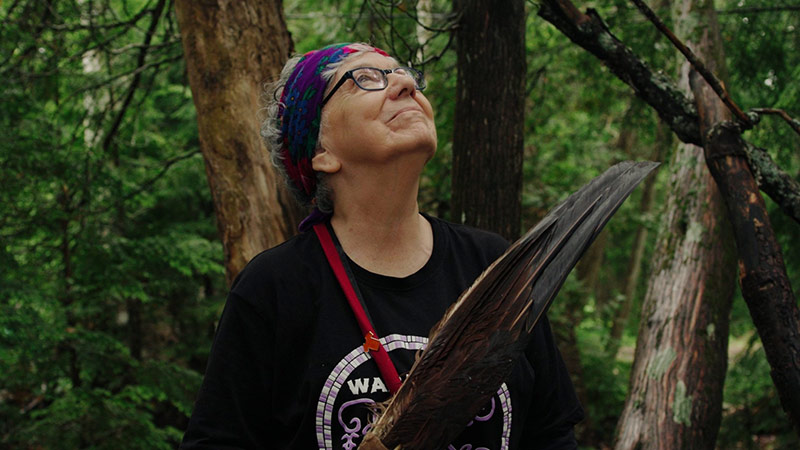Honouring Indigenous languages: A celebration of resilience and legacy
Author: Angie Deveau
Posted on Jun 24, 2024
Category: UNB Fredericton , UNB Saint John

June marks National Indigenous History Month in Canada, a time dedicated to honouring the rich history, heritage and resilience of First Nations, Inuit and Métis peoples.
At the forefront of this commemoration is the recognition of Indigenous languages not just as tools of communication but as vital conduits of culture, tradition and identity, echoing the enduring legacy of Indigenous communities.
Last autumn, in downtown Fredericton, the University of New Brunswick’s (UNB) Mi'kmaq-Wolastoqey Centre (MWC) orchestrated a transformative language gathering that illuminated the resilience and beauty inherent in Indigenous languages.
This event, The Language Will Weave Us Together: A Wabanaki Language Gathering, exemplified the collaborative efforts of Indigenous knowledge keepers, Elders, language speakers and community leaders, who have long championed the revitalization of their languages as essential components of cultural survival.
The gathering also provided a dynamic platform for diverse experiences, blending language, tradition and communal engagement.
Dr. Imelda Perley, a distinguished Elder and language advocate, delivered a keynote address that resonated deeply with attendees.
Drawing on her extensive experience in language preservation, Perley underscored the profound significance of language in reshaping perspectives and decolonizing minds.
"Let's acknowledge the beautiful room," remarked Perley, setting the tone for her heartfelt reflections. "We're in [a] beautiful event."
During her address, Perley interwove anecdotes of ancestral dedication, illuminating the intimate connection between language, culture and traditional practices. She was filled with emotion, saying, “If this is what language heaven is, I want to be [here] all the time.”
She continued, "Look at the speakers at each table. Look at the learners at each table. Look at the ones still carrying it on.”
“Following those foot tracks of their mothers, their grandmothers, their dads, their grandfathers, their uncles and look at all the children that are here witnessing their future."
She invited students to come to the microphone and read in their language. They demonstrated their dedication to learning the language daily.
Perley asked some important questions.
“Am I going to wait at my home to have language delivered to me without any work? Am I going to learn the language just by going for hours a week at [a] university class? [Or] am I going to just sit in class and expect that that one class is going to be enough, or one course is going to be enough?"
She emphasized the importance of practicing the language daily. “Not only will I be the sole carrier of my [own] language, but I'm going to carry it to others who want to carry it with me.”
Reflecting on the significance of Indigenous languages in the context of homeland, Perley emphasized, "Our mother Earth, our homeland, is where we grew up, where we heard our language. Unfortunately, where we also lost our language."
Perley's address highlighted the urgent need for innovative approaches to language revitalization, rooted in traditional wisdom and contemporary technology.
"[It’s just like] weaving baskets, which is beautiful because that's where knowledge is kept, in our baskets,” she said. “There's language in those baskets because they tell a story right from the tree, right from the creator."
"Our languages are not just words; they are living expressions of our cultures, histories and identities," she affirmed, emphasizing the collective responsibility of preserving and revitalizing Indigenous languages.
As National Indigenous History Month unfolds, this language gathering in Fredericton stood as a testament to the enduring legacy of Indigenous languages, spotlighting their pivotal role in shaping the narrative of First Nations, Inuit and Métis communities across Canada.
Through collective reverence, collaboration and innovation, Indigenous communities are reclaiming their languages and safeguarding their cultural heritage for generations.
As we celebrate National Indigenous History Month, Perley's final words encapsulate the spirit of the ongoing efforts to revitalize Indigenous languages.
"Our homeland still carries our languages; therefore, language is not lost forever. Language is awaiting a re-awakening by present and new generations. Let language sing again. Let language live again.”
